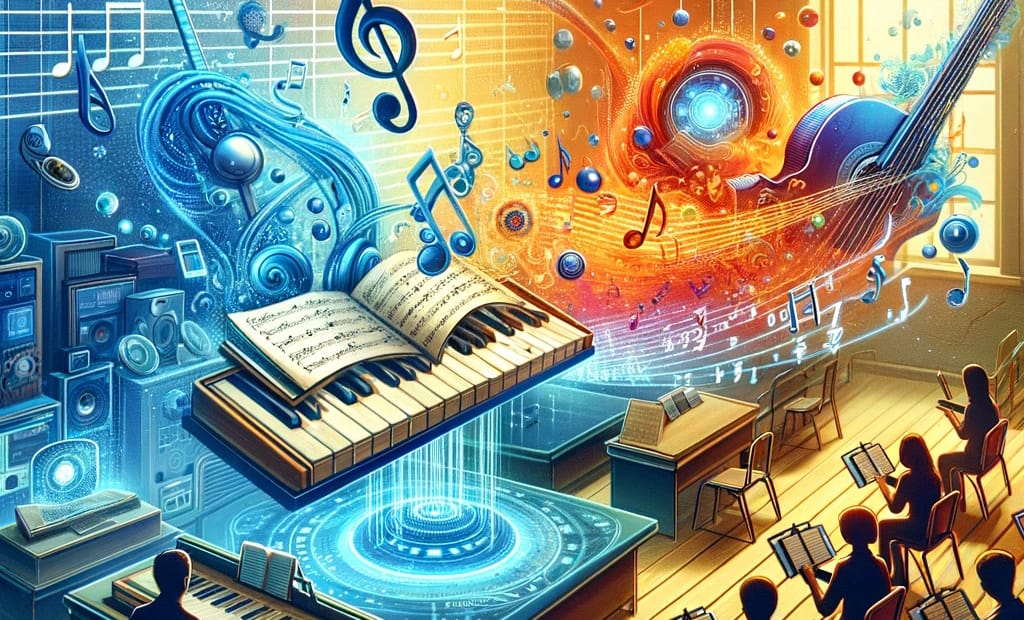Embracing the Future of Music: How AI is Revolutionizing Music Education

The landscape of music education is undergoing a revolutionary change, thanks to the advent of Artificial Intelligence (AI). This technology is not just a futuristic concept; it's a present reality, shaping the way we learn, teach, and interact with music. In this blog post, we'll explore the various ways AI is transforming music learning, making it more personalized, interactive, and accessible than ever before.
Personalized Learning Experiences: AI's ability to analyze a student’s playing style, strengths, and weaknesses allows for the creation of tailored lesson plans. This personalized approach ensures that learners are receiving instruction that is directly relevant to their needs, making the learning process more efficient and effective.
Interactive Learning Tools: Gone are the days of one-dimensional music learning. AI-powered apps and software offer interactive experiences, providing real-time feedback on various aspects of performance such as pitch, rhythm, and technique. This is particularly beneficial for beginners who are just starting to understand the nuances of musical performance.
Virtual Music Tutors: AI-driven virtual tutors are a game-changer, especially for those without access to human instructors. These tutors can guide through lessons, offer corrective feedback, and even respond to queries, making music education more accessible to a wider audience.
Enhanced Music Composition: For those interested in composition, AI can assist in suggesting chord progressions, melodies, and harmonies. This serves as a valuable learning aid in understanding music theory and the intricacies of composing music.
Music Recognition and Analysis: Through analyzing music pieces, AI helps in identifying patterns, styles, and structures. This not only aids in learning but also in appreciating the complexity and beauty inherent in different musical forms.
Accessible Music Making for All: AI-powered tools have opened up new possibilities for individuals with disabilities, enabling them to create and learn music in previously unimaginable ways. From motion tracking to eye tracking, these tools ensure that music making is inclusive.
Gamification of Learning: Many AI-based music learning platforms employ gamification to make the process more engaging and enjoyable. This approach is particularly effective in motivating younger learners to practice regularly.
Data-Driven Insights for Educators: AI provides valuable insights into a student’s progress, helping educators tailor their teaching methods to better meet the needs of their students.
Immersive AR and VR Experiences: The use of augmented and virtual reality in music education creates immersive environments, making learning a more engaging and interactive experience.
Global Collaboration: AI facilitates global collaboration, allowing learners to access diverse musical perspectives and world-class education regardless of their location.
Conclusion: AI in music education is not just a trend; it's a transformative force. By offering personalized, efficient, and accessible learning methods, AI is enriching the music education experience. It's an exciting time for music learners and educators alike, as we continue to discover the endless possibilities that AI brings to the world of music.
